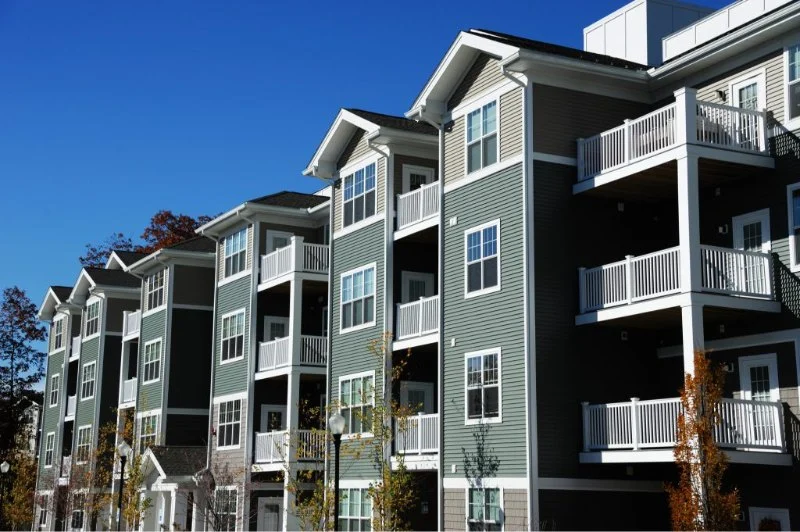
- 1. Understanding Your Lifestyle Needs
- 2. The Benefits of Condo Ownership
- 3. The Benefits of Renting
- 4. Cost Comparison Between Condo Ownership and Renting
- 5. How to Make the Right Decision for You
1. Understanding Your Lifestyle Needs
When deciding between condo ownership and renting, it’s important to first assess your personal lifestyle and long-term goals. Are you looking for a permanent home or do you prefer the flexibility of moving around? Condo ownership and renting come with their own sets of advantages and drawbacks, depending on your situation.
Consider factors like how long you plan to stay in one place, your financial goals, and whether you value the freedom that comes with renting or the stability of owning. Homeownership often involves more long-term commitment, while renting provides more flexibility and fewer responsibilities for maintenance and repairs.

West 130 / 130 west hempstead apartments
West HempsteadNassau CountyNew York
130 Hempstead Ave, West Hempstead, NY 11552, USA
2. The Benefits of Condo Ownership
Owning a condo can be a great investment and offers a number of long-term benefits. While condos are typically more affordable than single-family homes, they still provide the ownership experience with the added benefit of shared amenities such as gyms, pools, and security services. Below are some key advantages of condo ownership:

Prism at Park Avenue South Apartments / prism at park avenue south apartments
New YorkNew York CountyNew York
50 E 28th St, New York, NY 10016, USA
2.1. Building Equity
One of the biggest advantages of owning a condo is the ability to build equity over time. Each mortgage payment you make increases your ownership stake in the property, and as the property value appreciates, you may gain significant financial benefits when you sell.
2.2. Control Over Your Space
When you own a condo, you have more control over your living space. Unlike renting, where you may face restrictions on decorating or remodeling, condo ownership allows you to make changes, upgrades, or modifications to suit your style and needs. You also have more control over your living environment in terms of privacy and security.
2.3. Potential Tax Benefits
Homeowners often enjoy tax benefits, including deductions for mortgage interest and property taxes. These deductions can significantly reduce your annual tax liability and help offset the costs of condo ownership. Be sure to consult with a tax professional to understand the full extent of these benefits in your area.
3. The Benefits of Renting
While condo ownership offers significant benefits, renting has its own unique advantages. Renting a condo or apartment can be the right choice for people who want flexibility, lower upfront costs, and fewer responsibilities. Here are some key benefits of renting:
3.1. Flexibility and Mobility
Renting gives you the flexibility to move whenever you want. If your job or personal circumstances require relocation, renting allows you to do so without the hassle of selling a property. This mobility is ideal for people who are in transition or prefer not to be tied down by a long-term investment.
3.2. Lower Upfront Costs
When renting, your initial financial commitment is typically limited to a security deposit and the first month’s rent. In contrast, purchasing a condo requires a down payment, closing costs, and other fees. For those who may not have the financial resources for a down payment or prefer to avoid long-term debt, renting is an easier and less expensive option.
3.3. Fewer Maintenance Responsibilities
Renters are not responsible for the maintenance and repair of the property. If something breaks, it’s the landlord’s responsibility to handle repairs. This makes renting an attractive option for those who do not want to deal with the time, effort, and costs associated with property upkeep, such as plumbing issues, roof repairs, or appliance replacements.
4. Cost Comparison Between Condo Ownership and Renting
When deciding between condo ownership and renting, it’s important to compare the costs associated with each option. The total cost of ownership can be higher than renting due to upfront expenses, ongoing mortgage payments, property taxes, and condo association fees. However, owning a condo can also be a better long-term financial investment.
4.1. Monthly Payments
Renting typically involves paying a fixed monthly rent, which may increase over time. Condo ownership, on the other hand, comes with a mortgage payment, which can fluctuate based on the interest rate and the terms of the loan. It’s important to calculate the total cost of ownership, including mortgage payments, property taxes, insurance, and condo fees, and compare it to the monthly rent you would pay for a similar unit.
4.2. Long-Term Financial Considerations
While renting offers flexibility and lower upfront costs, owning a condo can lead to long-term financial benefits. As mentioned earlier, homeowners build equity with each mortgage payment, and property values tend to increase over time, allowing you to potentially sell your condo for a profit in the future. Renting, however, does not allow you to build equity, as rent payments are simply an expense rather than an investment in your future.
4.3. Hidden Costs of Condo Ownership
Condo owners must also consider additional costs, such as association fees, which cover the maintenance of shared spaces and amenities. These fees can vary depending on the building and its amenities, and they can sometimes be quite significant. Additionally, homeowners are responsible for property taxes, which renters do not have to pay directly. Be sure to factor in all these costs when deciding between condo ownership and renting.
5. How to Make the Right Decision for You
Deciding whether to rent or buy a condo depends on a variety of factors, including your financial situation, lifestyle preferences, and long-term goals. Here are some tips to help guide your decision:
5.1. Assess Your Financial Stability
Owning a condo requires a significant financial commitment, not only for the down payment but also for ongoing costs like mortgage payments and maintenance fees. Make sure you have a stable income and sufficient savings before committing to condo ownership. Renting may be a better option if you're still working on saving for a down payment or if you prefer a more flexible financial situation.
5.2. Consider Your Long-Term Plans
If you plan to stay in the same location for many years, buying a condo might be the right choice, as it offers long-term financial benefits. However, if you anticipate needing to move in the near future, renting provides the flexibility to do so without the burden of selling a property.
5.3. Weigh Your Desire for Stability vs. Flexibility
Owning a condo offers stability, both financially and in terms of your living situation. However, renting allows you to move freely and adjust to changes in your personal or professional life. If you value stability and the idea of building equity, condo ownership may be right for you. If flexibility is more important, renting may better align with your goals.







 Regus0.0 (0 reviews)
Regus0.0 (0 reviews) Artemisia Management LLC3.0 (17 reviews)
Artemisia Management LLC3.0 (17 reviews) New Island Realty Inc.3.0 (8 reviews)
New Island Realty Inc.3.0 (8 reviews) Medow Property Group Ltd0.0 (0 reviews)
Medow Property Group Ltd0.0 (0 reviews) Carnegie House (enter on 6th Ave)4.0 (8 reviews)
Carnegie House (enter on 6th Ave)4.0 (8 reviews) venegas&latinos associates0.0 (0 reviews)
venegas&latinos associates0.0 (0 reviews) How to Research Neighborhood Trends Before Buying – Smart Homebuyer Insights | Luxen House Realty Hub
How to Research Neighborhood Trends Before Buying – Smart Homebuyer Insights | Luxen House Realty Hub Tips for Boosting Your Home’s Curb Appeal Before Listing | Luxen House Realty Hub
Tips for Boosting Your Home’s Curb Appeal Before Listing | Luxen House Realty Hub Tips for Buying a Home in a Historic District: What You Need to Know
Tips for Buying a Home in a Historic District: What You Need to Know Understanding the Pros and Cons of Short-Term Rentals
Understanding the Pros and Cons of Short-Term Rentals Understanding the Risks and Rewards of Foreclosed Property | Luxen House Realty Hub
Understanding the Risks and Rewards of Foreclosed Property | Luxen House Realty Hub How to Sell a Home Quickly During Peak Season - Tips and Strategies
How to Sell a Home Quickly During Peak Season - Tips and Strategies